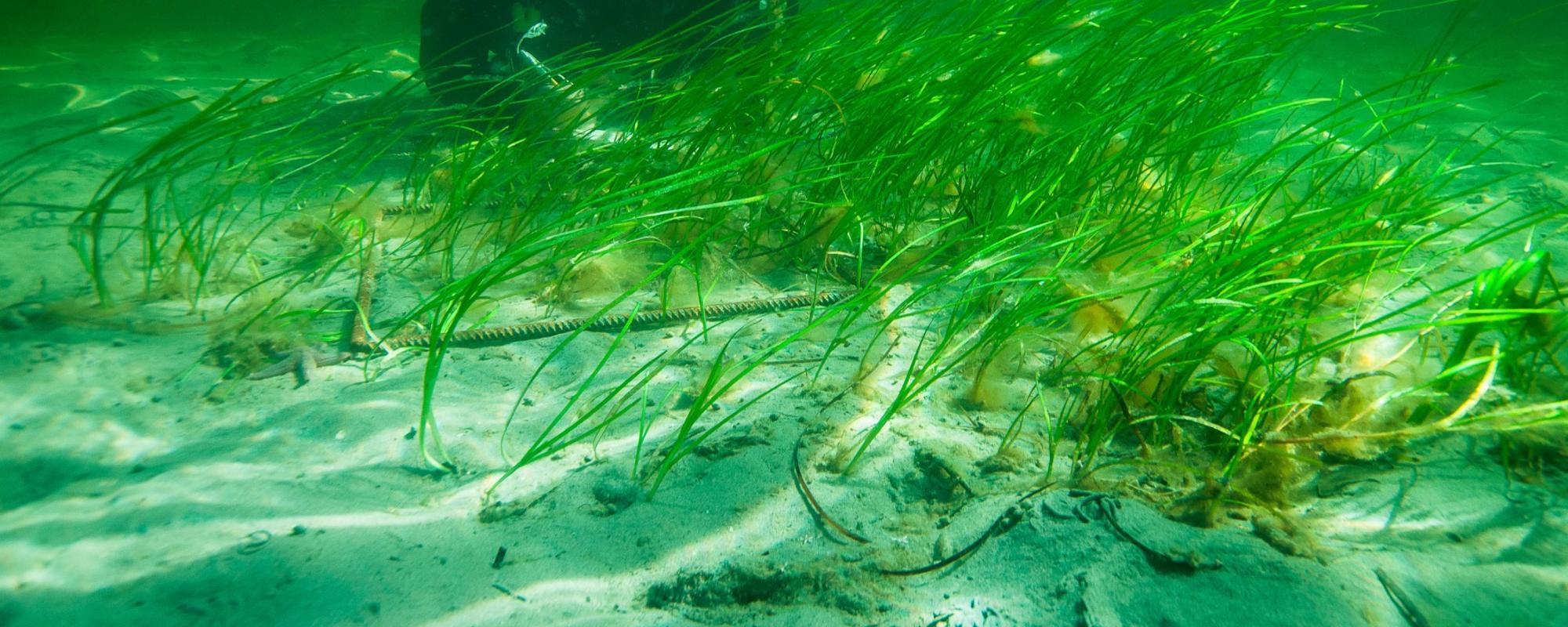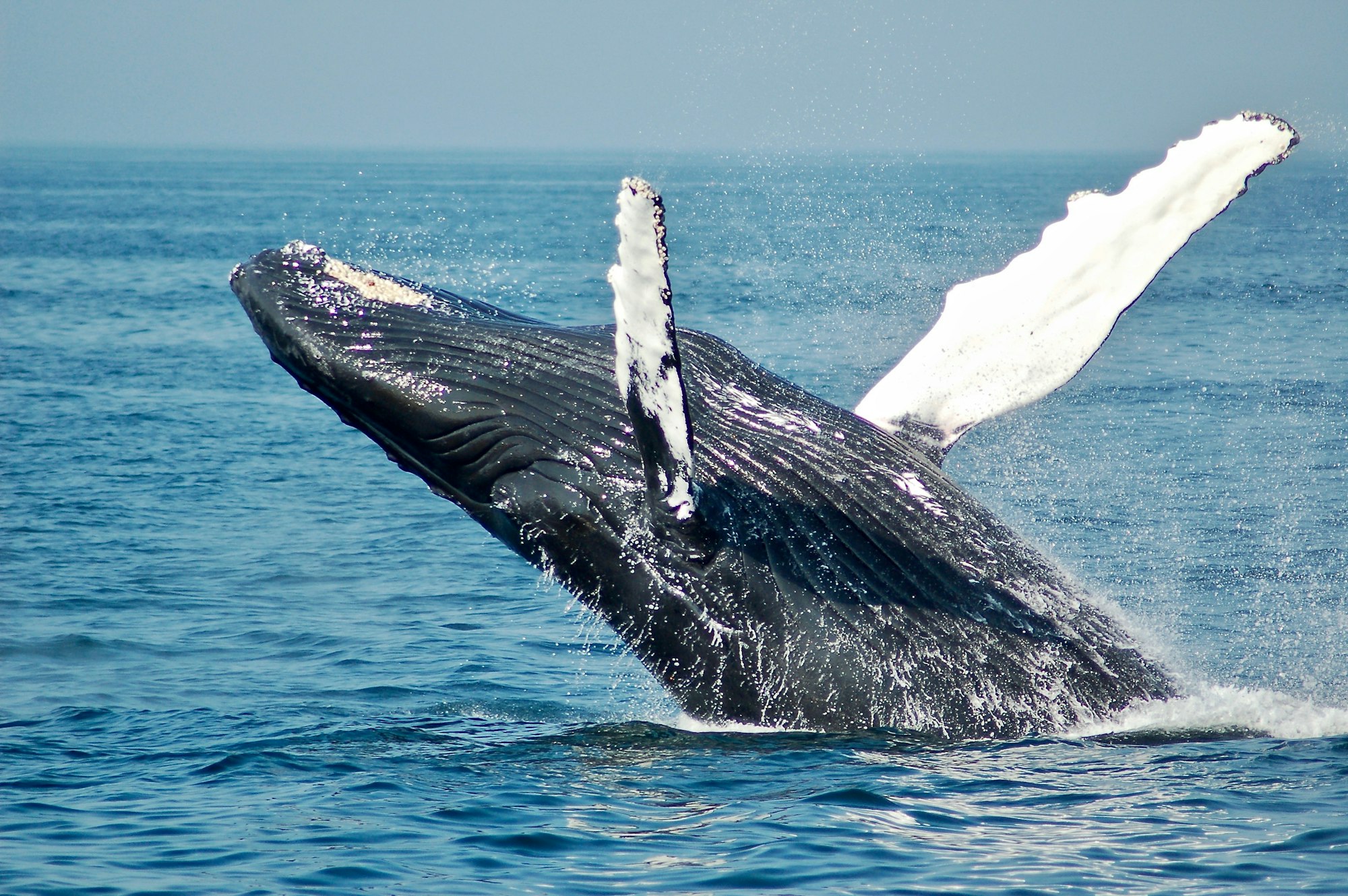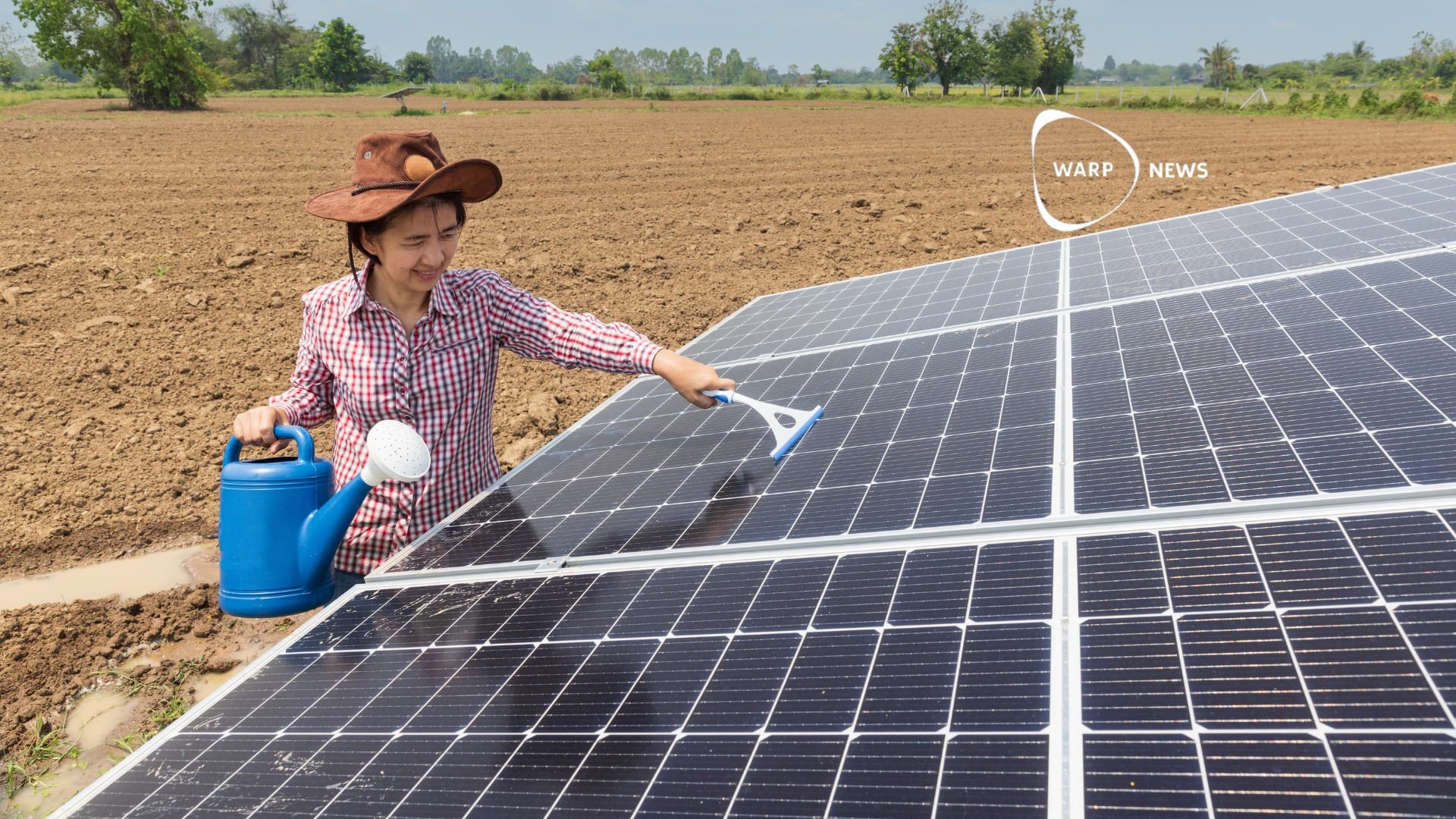
🌱 Success in replanting eelgrass
80,000 eelgrass plants grew to 860,000 in a year when researchers planted them in sand to give the plants better anchorage to grow in the sea.
Share this story!
The eelgrass in the sea around southern Bohuslän has disappeared at a rapid rate in recent decades. This is bad news because the eelgrass meadows are important habitats for many species of plants and animals and serve, among other things, as nurseries for fish.
On a positive note, a project from the County Administrative Board in Västra Götaland and the University of Gothenburg shows that it is possible to reverse the trend. A research team has tested planting eelgrass plants in sand.
"By first laying out sand, we have created new conditions in a bay where it was too murky for the eelgrass to survive. This is a new method in Sweden and therefore it is extra fun that the eelgrass has done so well after planting," says Beatrice Alenius, marine biologist and project manager at the County Administrative Board in Västra Götaland, in a press release.
The researchers planted 80,000 eelgrass plants in a shallow bay last year. When the researchers examined the area this year, it turned out that the eelgrass grew very well in the area. The number of plants in the area had increased from 80,000 to 860,000.
"The eelgrass shoots have had unexpectedly good growth. It is likely that we have now passed a tipping point where the eelgrass contributes to reducing the turbidity of sediment, improving light conditions, and that the eelgrass bed can continue to spread," says Per Moksnes, researcher at the University of Gothenburg.
The best thing, of course, is to protect existing eelgrass meadows so we don't have to replant the eelgrass, but in cases where the meadows have already been damaged, there is now a method to recreate them.
"This is the first time that the sand cover method has been tested on a large scale with successful results. It shows that it is possible to replant eelgrass even where the conditions are difficult and our usual methods do not work," says Per Moksnes.

By becoming a premium supporter, you help in the creation and sharing of fact-based optimistic news all over the world.



